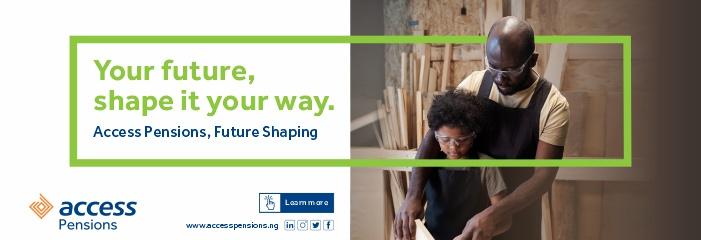By: Chinenyenwa Owuamalam
In a rapidly evolving world characterized by complex challenges such as poverty, inequality, and environmental degradation, the United Nations General Assembly (UNGA) in 2015 charted a course towards a more sustainable future, by creating the Sustainable Development Goals (SDGs). The SDGs are a set of 17 objectives aimed at addressing targeted global issues by the year 20 30. These goals stand as measurable parameters, pointing nations of the world towards a future that is equitable, clean, prosperous, and sustainable. Speaking at the opening of the high-level forum on SDGs at the United Nations (UN) headquarters in New York, UN Secretary-General, Antonio Guterres said: “The SDGs aren’t just a list of goals. They carry the hopes, dreams, rights and expectations of people everywhere.” At their core, the SDGs are a call to action for all countries of the world to recognize that global challenges are interconnected and that progress in one area often depends on improvements in others. Nigeria, the giant of Africa, stands at the forefront of a global endeavour in its relentless pursuit towards achieving the SDGs. This is evidenced by a monumental commitment to alleviate poverty, safeguard the environment, and foster prosperity for all. Owing to its diverse and multicultural population, Nigeria’s journey towards these ambitious goals mirrors the complex challenges facing emerging economies, especially in Africa.
On Tuesday 19th September 2023, the President of the Federal Republic of Nigeria and Commander-in-Chief of the Armed Forces, President Bola Ahmed Tinubu GCFR, addressed world leaders at the UNGA 2023 themed: “Rebuilding Trust and Reigniting Global Solidarity, Accelerating Action on the 2030 Agenda and its Sustainable Development Goals towards Peace, Prosperity, Progress, and Sustainability for All”. President Tinubu harped on topical issues with the potential to progressively transform Nigeria, such as job creation, direct investment in critical industries, affirmation of democratic governance, curbing of violence and extremism, security of natural resources, remedial actions to tackle climate change, to mention but a few. The Presidential speech also underscored Nigeria’s readiness to positively contribute to the broader international conversation on the SDGs in addressing these issues. In recognition of the fact that global cooperation is the cornerstone for the stimulation of economic growth, he opined: “The question is not whether Nigeria is open for business. The question is how much of the world is truly open to doing business with Nigeria and Africa in an equal, mutually beneficial manner.”
Nigeria has continuously demonstrated its unwavering commitment to the SDGs through various initiatives and policy frameworks. Spearheaded by the Federal Ministry of Budget and National Planning, the nation has aligned its national development agenda with the 2030 Agenda for Sustainable Development. This fusion signifies Nigeria’s dedication towards addressing critical issues such as poverty, education, healthcare, gender equality, and environmental protection.
The 8-point Agenda of the Nigerian Government titled “Roadmap for the Economy” was revealed at the Federal Executive Council meeting of 28th August 2023. The agenda is designed to address issues of Food Security, Poverty Eradication, Economic Growth and Job Creation, Access to Capital, Improving Security, Improving the Playing Field on which People and Particularly Companies operate, Rule of Law, and Fighting Corruption. An in-depth analysis of the agenda showcases a strategic plan designed to support the SDGs. For instance, the inclusion of food security in the 8-point agenda aligns with SDG 2, which aims to end hunger, achieve food security, improve nutrition, and promote sustainable agriculture. The agenda’s emphasis on poverty eradication also resonates with SDG 1, which seeks to end poverty in all its forms. Another key component of sustainable development is to ensure that all segments of the population have equal access to opportunities and resources. For instance, access to capital for entrepreneurs and small business owners has the tendency to create jobs, stimulate economic growth, and promote decent work opportunities and ease some of the burden on government. In its bid to support innovation and drive infrastructure development, the government should financially invest in entrepreneurs and researchers. For years on end, banditry and insurgence have been the order of the day, leading to reduced investor confidence and placing an enormous strain on the resources of government. Therefore, the problem of insecurity in Nigeria must be tackled headlong by the current administration. The rule of law must take precedence, to guarantee the protection and enforceability of human rights and provide a stable investor friendly environment. By rejecting corruption through implementing a rigid system of checks and balances, Nigeria stands to reap the benefit of significant progress in its journey towards achieving the SDGs.
In the face of complex challenges, Nigeria stands at a critical juncture. The path ahead requires an intentional and concerted effort to overcome obstacles and accelerate progress towards the accomplishment of the SDGs. First, there is an apparent need to invest in robust data collection and analysis systems to ensure accurate and timely monitoring of each progress. The quality and availability of data, particularly at the sub-national level should be enhanced to provide a roadmap and measure verifiable upward movement toward the achievement of the SDGs. This proposed database would inform key policy formulation, aid executive decision making and encourage equitable resource allocation. A second factor to consider is the level of youth participation in achieving the SDGs. Youth involvement is a powerful force for advancing fresh perspectives and innovative solutions to the challenges faced by Nigeria in the realization of the SDGs. It is imperative to commend President Bola Ahmed Tinubu on his overwhelming support for youths, evidenced by the inclusion of exceptional youths with proven track record, in his ministerial cabinet and other key appointments which promote sustainability. Thirdly, it is recommended that increased investment in education and the introduction of skill development in curriculum for schools would boost the Nation’s capacity, paving the way for the leaders of tomorrow to thrive. Towing the path of developed countries of the world, public education up to the senior secondary level should be free and accessible to all. In addition, teacher remuneration should be improved to enhance productivity and output. There is no gain saying the fact that health is wealth, and a healthy Nigeria is a wealthier Nigeria. Flowing from this statement, a fourth recommendation is that existing healthcare infrastructure and services, especially those in rural areas, should be improved and subsidized. A strategic partnership with the World Health Organization (WHO) is key, to drive the government’s blueprint for improving the health sector. Fifth, it is crucial to implement transparent poverty alleviation programs which address the root cause of poverty, rather than invest in short term palliatives with little or no impact. Some long term driven ideas include social safety nets, vocational training, and encouraging micro-finance initiatives, to empower Nigerians. It is expected that the poverty eradication efforts of the government would focus on marginalized and vulnerable populations, by ensuring that they are the first beneficiaries of government’s investment in human capital since creating job opportunities plays a pivotal role in permanently shaping the continent’s prosperity. There is also the overwhelming need to focus on the diversification of the economy because Nigeria’s over reliance on proceeds of Oil and Gas has resulted in an overlook of other major sectors such as agriculture, tourism, manufacturing, mining of natural resources, harnessing of indigenous talents, etc., which can lift Nigeria out of poverty in perpetuity. Again, because accountability and transparency in institutions are key for good governance, the government should invest in building strong institutions and reforming existing ones, to effectively implement the clear cut policies enumerated in its 8-point agenda. Finally, strategic partnership and collaboration with international development organizations, donor agencies, and other progressive countries, must be given due consideration, to enable the government access technical expertise, financial resources and beneficial partnerships for capacity building and project implementation.
The discussions on the transformative promise of the SDGs to “leave no one behind” vis-a-vis Nigeria’s quest to becoming fully SDG compliant, are far from over. By implementing these strategies, Nigeria is poised to make significant strides towards achieving the goals by 2030, thereby achieving the vision of renewed hope for all Nigerians. However, the path to sustainable development is a collective journey that requires effort from the government, civil society, the private sector, and all Nigerian citizens. Consequently, all hands must be fully on deck to uphold the honour and glory of our great nation, and ensure that the labour of our heroes past, shall never be in vain.
-Chinenyenwa Owuamalam is a highly accomplished lawyer with a strong background in the financial, policy, energy, and government sectors, offering a cumulative twelve years of experience. She is an active member of the International Bar Association, the African Bar Association, the Nigerian Bar Association, the International Federation of Women Lawyers (FIDA) and the Chartered Institute of Arbitrators (United Kingdom). An avid humanitarian, she consults pro-bono for notable charities in Nigeria, particularly on topical issues affecting the girl-child, the downtrodden and the underrepresented.



